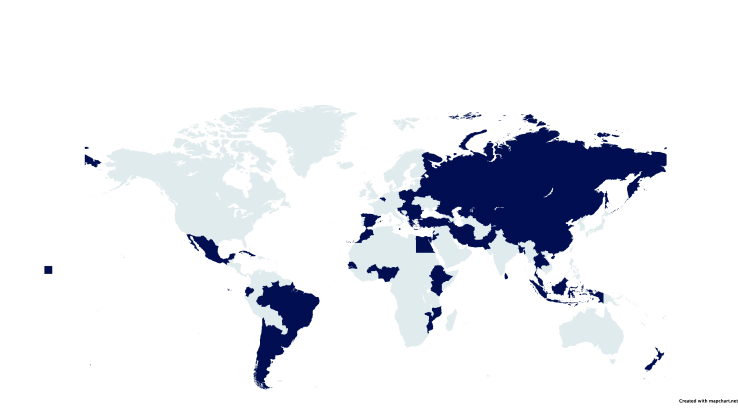Establishing, fostering and developing cooperation with other universities in the country and abroad, along with international organizations concerned with matters of higher education, has been an everlasting commitment of the University of Belgrade.
Various and long-lasting activities in the field of international relations resulted in numerous bilateral agreements of cooperation with partner universities on every continent within several different framework programs, such as inter-university bilateral agreements, Erasmus+, summer schools, foundations, public-private partnerships, etc.
In the below table you may search through our active bilateral (inter-university) and Erasmus+ agreements, as well as through the agreements on hosting summer schools.
Important: Foreign university/institution that wishes to initiate cooperation with the University of Belgrade should officially contact the International Relations Office. Of the University of Belgrade. Cooperation is exclusively negotiated between the UB International Relations Office and the relevant office of the foreign HEI (International Relations Office, Erasmus Office, Global Mobility Office, Rector’s Office, etc.). If you are a student/staff at the foreign university and would like to initiate cooperation with UB, please get in touch with the office in charge at your home university.
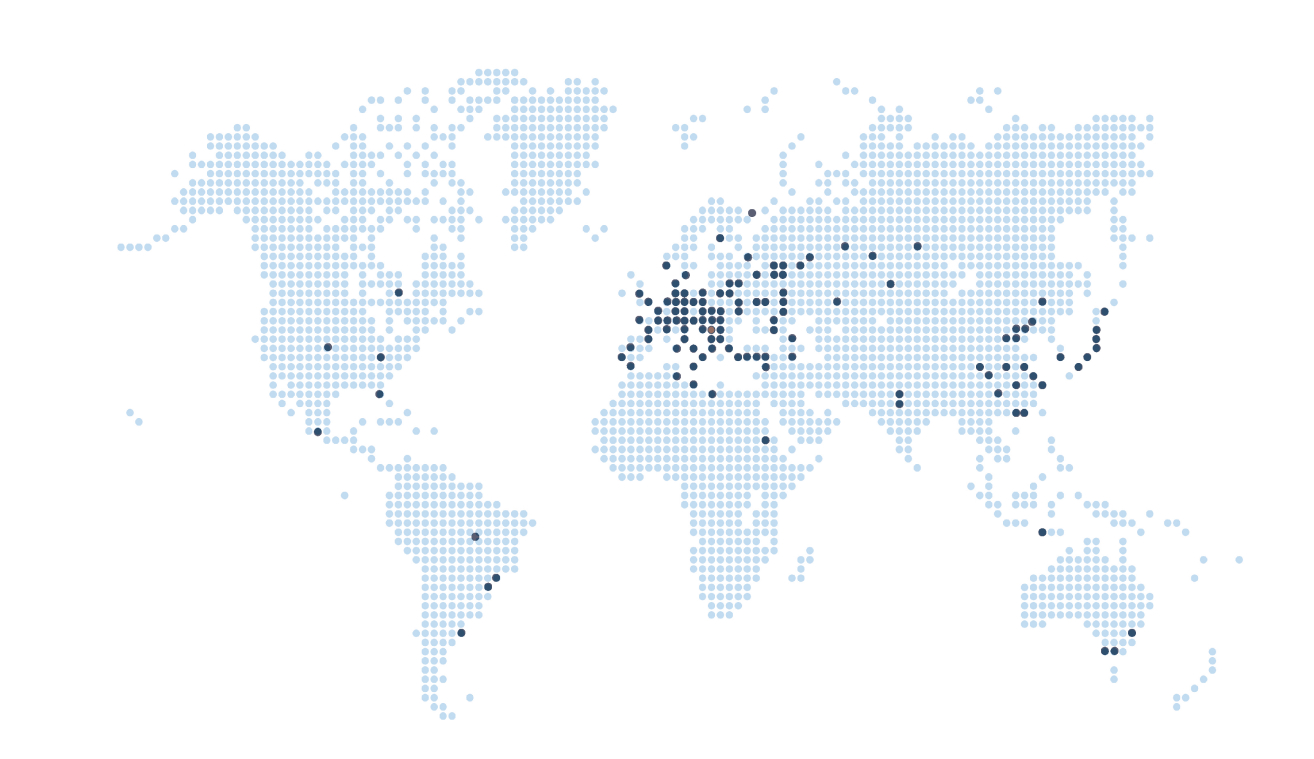
The University of Belgrade is committed to its membership in prestigious international networks, associations and alliances of universities and HE institutions oriented towards academic and research excellence, while taking an active role in building international societies in various aspects and fields of common interest.
Following its strong commitment to the idea of European Universities Initiative and its aim to promote European values and increase the quality and competitiveness of European Higher Education, the University of Belgrade has proudly joined the Circle U. European University Alliance in 2019.
Comprised of universities from 9 European countries, the Circle U. is committed to building an inclusive, research-intensive and interdisciplinary European university by 2030: Aarhus University Denmark, Humboldt-Universität zu Berlin, Germany, King’s College London, United Kingdom, Université Paris Cité, France University of Belgrade, Serbia, UC Louvain, Belgium, University of Oslo, Norway, University of Pisa, Italy and University of Vienna, Austria.
Among other activities, in its first years the Circle U. will be promoting student and staff mobility between its members. For mobility opportunities available to the students and staff from Circle U. members, please see section Why choose Belgrade.
The University of Belgrade works closely with the Tokyo Foundation for Policy Research and ITO Foundation, both from Japan. The ITO Foundation awards scholarships for specialized training in Japan to the best graduate students. Sylff Fellowship Fund of the University of Belgrade was founded in 1988 with the resources awarded by the Tokyo Foundation for Policy Research. The resources of this fund are being used to award the best graduate, i.e. doctoral students in the fields of social sciences and humanities. The donors’ aim is to give support to students showing extraordinary accomplishments in their studies and in carrying out their projects both in the country and abroad.
SYLFF (The Sasakawa Young Leaders Fellowships Fund) was founded in 1987 by the Nippon Foundation to support graduate students in the humanities and social sciences. The program gathers 69 most prestigious universities and HE institutions from 44 countries. Since its foundation 16000 students have been granted scholarships and after completion of studies became professionally engaged in variety of fields. Information on institutions – members of the SYLFF program – can be found at the official SYLFF website: http://www.tokyofoundation.org/sylff/institutions

The SYLFF program aims to identify and support the best students – future leaders – who will invest their integrity and motivation to help their countries orient towards tackling global issues and solving specific local problems, using socio-political instruments and mechanisms.
Following the vision and the legacy of the founder, support to the best students is given through scholarships granted by the Nippon Foundation. Scholarships are allocated to selected HE institutions around the globe, while the administration of the program is executed by the Tokyo Foundation for Policy Research. Such organization ensures for a sustainable and continuous support. We encourage you to listen to the message of the Chairman of the Nippon Foundation, HE Mr. Yohei Sasakawa, at the following link: http://www.tokyofoundation.org/sylff/about/message_sasakawa
For more information about the program and available scholarship schemes please visit the official website of the Tokyo Foundation for Policy Research: http://www.tokyofoundation.org/sylff/about/what_is_sylff
Cooperation of the University of Belgrade and the SYLFF program started back in 1989, only two years after the SYLFF was founded as one of the leading programs of the Tokyo Foundation for Policy Research (www.tkfd.or.jp). The University of Belgrade was the 10th jubilee university in the world which had been granted a donation from Japan to financially support its best students in the humanities and social sciences. The first SYLFF scholarships were awarded to the students of the University of Belgrade in 1990, and more than 120 students of the University of Belgrade have received this support so far.
The aim of the implementation of the SYLFF program at the University of Belgrade is to support continuation of education of PhD students with high potential for leadership at national, regional and international levels, within both public and private sectors. Scholarships are granted to extraordinary students of the UB Faculty of Law, Faculty of Philology, Faculty of Philosophy and Faculty of Political Sciences, in the fields of humanities and social sciences.
Please note that the Tokyo Foundation for Policy Research does not accept individual applications for scholarships. Sylff Steering Committees, founded at HE institutions which participate in the program, are in charge of the program implementation, including announcing the call and selecting the candidates.
Every year, the call for scholarships is announced by the Sylff Steering Committee of the University of Belgrade.
The call is announced once a year and remains open for at least a month. All eligible candidates are invited to submit their research plans and are called in for interview with the members of the Sylff Steering Committee at the University of Belgrade. Selection criteria include the average grade of a candidate in the course of their studies, as well as their published works, if any, and the quality and relevance of the proposed research plan. The call is announced in the media, on the website of the University of Belgrade, as well as the University’s social media accounts, detailing the information on selection criteria, deadlines, contact details and instructions for submitting applications.
Support programs offered by the SYLFF Association aim to facilitate SYLFF fellows’ academic advancement, leadership development and networking among one another. For more information about SYLFF Support Programs please visit the following link: www.sylff.org/support_programs
Ms. Branka Janda Marković
Head of the International Relations Office of the University of Belgrade
University of Belgrade
Studentski trg 1
11000 Belgrade
markob@rect.bg.edu.rs
+381 11 3207445
More information about the SYLFF Program can be found at: www.tokyofoundation.org/sylff
The ITO Foundation for International Education Exchange was established to realize the wishes of the late Master Shinjo Ito, founder of the Shinnyo-en Buddhist order. Shinjo Ito took the decision to devote himself fully to the religious life in 1936, at the age of 30. Having mastered the Buddhist traditions and attained the rank of Great Acharya at Daigoji, head temple of the Shingon school, he established a lay Buddhist order in the city of Tachikawa, near Tokyo, Japan. The new order was based on the last teachings of the Buddha as given in the Mahaparinirvana Sutra. Shinjo passed away in 1989. Shinjo’s global outlook demonstrated a deep understanding of the need for education. During his lifetime, he supported academic research, encouraged community service, and promoted schools in developing countries.

The ITO Foundation for International Education Exchange was established to fulfill Master Shinjo’s wish to support young people with Integrity, Talent, and Originality (ITO). Scholarships are awarded to promote mutual understanding between Japan and other nations, with the aim of nurturing people who can contribute internationally.
The call for applications for this scholarship is announced once a year, usually in late June. All candidates are informed about the application procedure and required application documents, while eligible candidates are called in for interview with the members of the Scholarship Selection Committee. The short-listed candidates’ documents are sent to Japan for ITO Foundations review and final decision (usually by the end of March the following year). The call is announced on the website of the University of Belgrade, and relevant information about the call is forwarded to all members of the University of Belgrade.
Ms. Ljubica Dimitrijević
Deputy Head of Office
International Relations Office of the University of Belgrade
University of Belgrade
Studentski trg 1
11000 Belgrade
stamlj@rect.bg.edu.rs
+381 11 3207455
Join us in forging partnerships and creating a lasting impact!
The University of Belgrade welcomes higher education institutions and stakeholders to reach out and initiate cooperation.
Contact us at iro@rect.bg.edu.rs to explore opportunities together. To help us categorize and prioritize, please include „Cooperation Proposal – [Institution Name], [Country]“ in the subject line.


Following its strong commitment to the idea of European Universities Initiative and its aim to promote European values and increase the quality and competitiveness of European Higher Education, the University of Belgrade has proudly joined the Circle U. European University Alliance in 2019.
Comprised of universities from 9 European countries, the Circle U. is committed to building an inclusive, research-intensive and interdisciplinary European university by 2030: Aarhus University Denmark, Humboldt-Universität zu Berlin, Germany, King’s College London, United Kingdom, Université Paris Cité, France University of Belgrade, Serbia, UC Louvain, Belgium, University of Oslo, Norway, University of Pisa, Italy and University of Vienna, Austria.
Among other activities, in its first years the Circle U. will be promoting student and staff mobility between its members. For mobility opportunities available to the students and staff from Circle U. members, please see section Study in Belgrade.
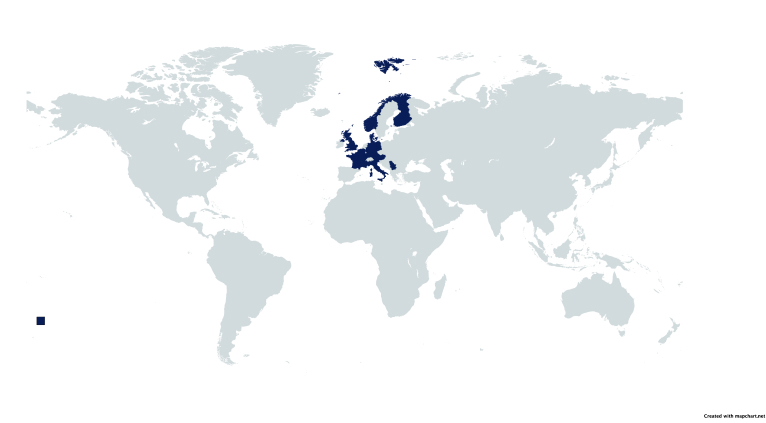

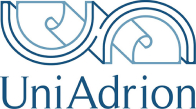
UniAdrion is a „Network of Universities“ (Italy, Greece, Slovenia, Albania, Bosnia Herzegovina, Croatia, Serbia, Montenegro) established with the purpose to create a permanent connection among Universities and Research centres from the Adriatic-Ionian Region.
UniAdrion promotes cooperation among Universities and Research Centres mainly through the realization of didactic initiatives, such as Master Programmes, Training Courses, Summer Schools, Post Graduate Joint Degree Courses. Courses can also foresee the collection of data and the creation of data bases.The main characteristic of the UniAdrion projects is a multidisciplinary approach, and study courses have been organised on several topics concerning cultural heritage, environment, cultural tourism, harbours and trade relations.
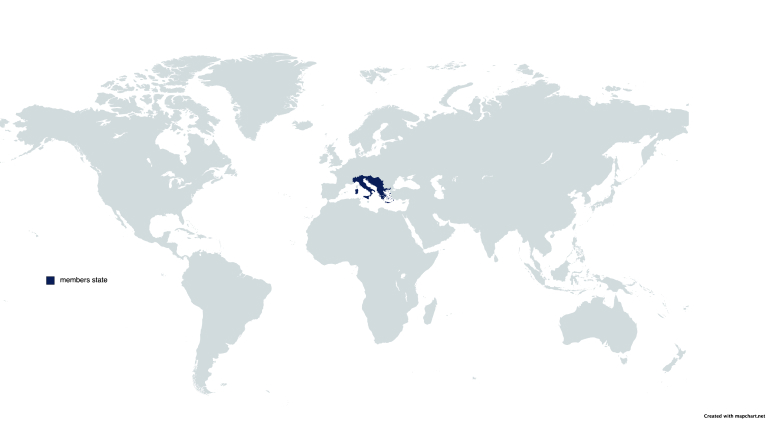
UniAdrion Секретаријат
Polo Scientifico-Didattico di Forlì – Universita’ degli Studi di Bologna Via Volturno 7 – 47100 Forlì, Italy
Phone: +39 0543 37 43 12/23/35
Fax: +39 0543 37 43 32
Federica Fantini: federica.fantini7@unibo.it
Giulia Ortali: giulia.ortali@unibo.it


The Alps-Adriatic Rectors’ Conference (AARC) is a network of over 40 universities (from Albania, Austria, Bosnia and Herzegovina, Croatia, Germany, Hungary, Italy, Serbia and Slovenia) from the Alps-Adriatic area and includes the Western Balkans since 2011. The main goal of AARC is to promote transnational dialogue and cross-border cooperation in the fields of university education and scientific research between Higher Education Institutions across the region, as well as transdisciplinary cooperation with different partners in the spheres of culture, industry, the arts, business and public institutions.
AARC cooperates with the requisite institutions of the European Union in scientific research and in the different cycles of higher educational training, including life-long learning, as well as to support teachers’ and students’ exchange and collaboration in all academic fields. AARC believes that harmonious coexistence and efficient collaboration constitute the characteristics and specificities of the cultural landscape of the Alps-Adriatic region and commits to strengthening cohesion of the European nations, as well as cooperation of Higher Education Institutions within and beyond the European Union.
The AARC Scientific Committee is the operative core of AARC. It is responsible for proposing activities and project ideas to be realized in the framework of AARC. All members of the Scientific Committee are official participants in the AARC meetings.
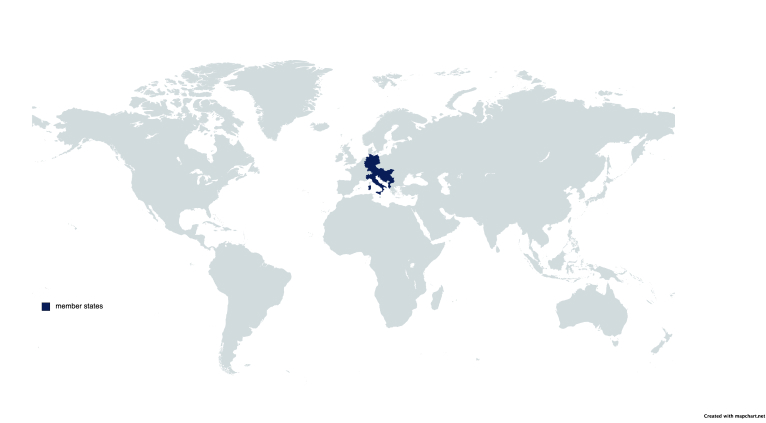
The Permanent Secretariat is both the service center for AARC members and the contact point for the public. It is located at Alpen-Adria-University of Klagenfurt. The Permanent Secretariat has supporting tasks in the field of administrative organization and communication. Its tasks include: AARC website administration, networking with secretariats of other Rectors’ conferences and educational associations, and all initiatives dealing with the institutional charges of AARC.
AARC Permanent Secretariat
Alpen-Adria-University of Klagenfurt
Universitätsstraße 65-67
9020 Klagenfurt
Austria
+43 463 2700 9275
aarc.secretariat@aau.at


The European University Association (EUA) represents and supports higher education institutions in 47 countries, providing them with a unique forum to cooperate and keep abreast of the latest trends in higher education and research policies.
Members of the association are European universities involved in teaching and research, national associations of rectors and other organizations active in higher education and research.
EUA plays an essential role in shaping tomorrow’s European higher education and research landscape thanks to its unique knowledge of the sector and the diversity of its members. The association’s mandate in the Bologna Process, contribution to EU research policy making and relations with intergovernmental organizations, European institutions and international associations, ensure its capacity to debate issues which are crucial for universities in relation to higher education, research and innovation.
EUA is the result of a merger between the Association of European Universities (CRE) and the Confederation of European Union Rectors’ Conferences, which took place in Salamanca, Spain, on 31 March 2001.
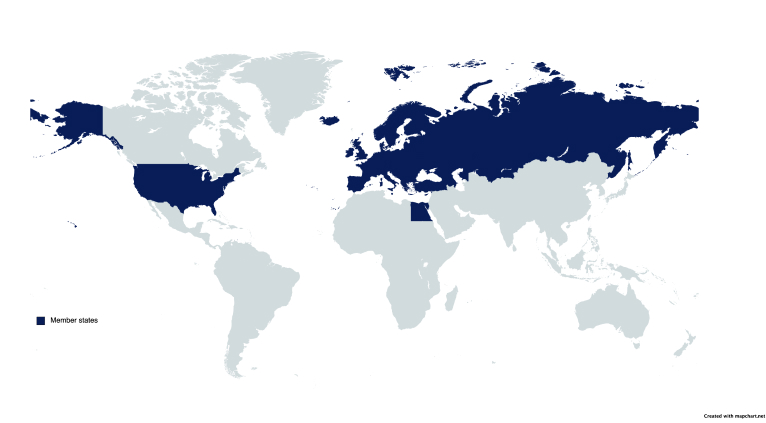


The Francophone University Agency (AUF) brings together 944 universities, colleges, university networks and scientific research centers that use the French language, in 116 countries. Founded almost 60 years ago, it is one of the largest associations of higher education and research institutions in the world. AUF is the official representative of the higher education and research sector at the Francophone Summit. The agency has responsibility for implementing resolutions relating to higher education adopted by the Conference of Heads of State and Government that use French as a common language.
AUF respects the diversity of cultures and languages and accompanies Francophone universities to engage in broader economic, social and cultural development issues. Our 2017-2021 strategy supports our members to respond to three major challenges: the quality of training, research and university governance, graduate employability and professional preparedness; and the critical role universities play as socio-economic development actors.
AUF promotes cohesion between higher education and research institutions to foster collaboration around projects that significantly improve the academic systems. AUF partners with many different types of organizations, including private companies and foundations, governments, national development agencies, international and non-governmental organizations, and academic, scientific and cultural associations. AUF’s staff around the world provide guidance and advice on the design, implementation and monitoring of projects, and facilitate the sharing of best practices, expertise and innovation.
Present in over 40 countries, AUF has a network of 59 regional local offices. Its headquarters are divided between Montreal and Paris. Ten regional offices are located in: Central Africa and the Great Lakes; Northern Africa; West Africa; North, South & Central America; Asia-Pacific; the Caribbean; Central and Eastern Europe; Western Europe; the Middle East; and the Indian Ocean. Seven administrative offices, 36 Francophone «digital campuses» and four Francophone institutes dedicated to training, research, advice and expertise complete this regional management network.
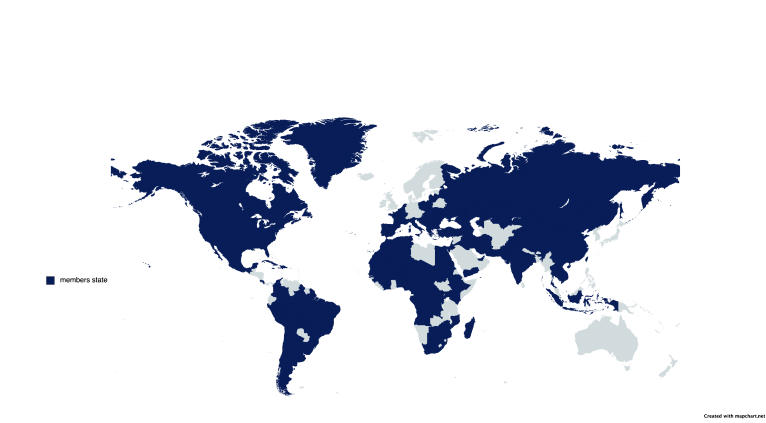
Bureau National AUF Bulgarie
15, Bul. Tzar Osvoboditel, Sofia, Bulgarie
+ AUF – Europe Centrale et Orientale
Téléphone: +359 2 955 95 71
Courriel : bureau-bulgarie@auf.org


Cumulus represents a dynamic ecosystem for internationalization and global mobility, knowledge exchange, and collaboration in art and design pedagogy, research, and practice.
357 members in 66 countries
Members of the network gain access to a global association unparalleled in size, scope, and standing. Committed to enhancing the quality of art and design higher education, we offer one of a kind opportunity through conferences and events, working groups and partnerships, and the sharing of research, knowledge, and resources.
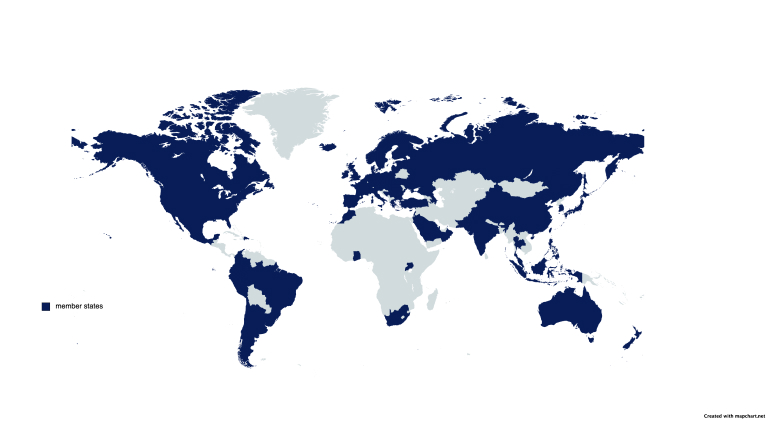

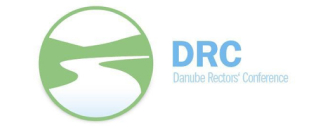
The Danube Rectors’ Conference is a network of almost 70 universities in the Danube Region. It improves higher education in teaching and research in this region, and in particular the advancement of its member universities, by establishing and facilitating bilateral and multilateral contacts between the universities.
DRC coordinates ideas and actions of its members through the exchange of information on issues of common interest, and acts as a consultant, by presenting its views and by making appropriate recommendations on problems which concern the universities, to government, national or international organizations, as well as to others who are involved with issues concerning universities.
In order to perform these tasks, DRC maintains links with national and international organizations the activities of which are of interest or relate to universities and, in particular, with the national Rectors’ Conferences, EUA, UNESCO, EU, Council of Europe, etc.
DRC organizes conferences, workshops, summer schools and participates in EU funded projects. DRC also actively contributes to the Priority Areas Workgroups of the EU Strategy for the Danube Region.
Official site: www.drc-danube.org
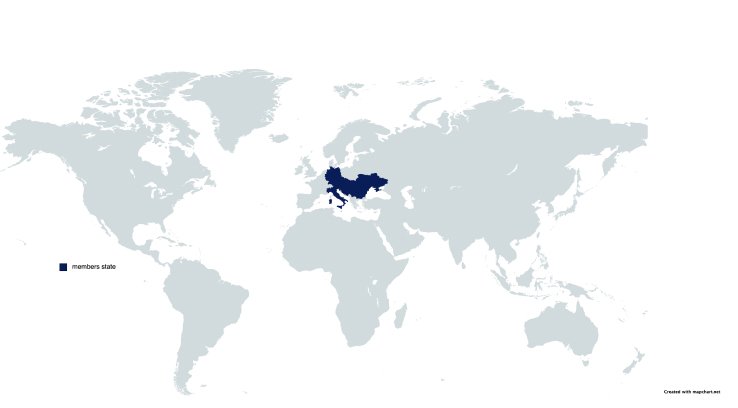


The Black Sea Universities Network represents the cooperation framework for academic institutions from the Black Sea Region that facilitates the inter-university cooperation and the generation of synergies between education, scientific research, innovation and cultural cooperation. Since its establishment in 1998, BSUN has organized different events in order to facilitate debates, the exchange of good practices and the implementation of joint projects.
At present, the Network includes 117 universities from the 12 member-countries of the Black Sea Economic Cooperation as Albania, Armenia, Azerbaijan, Bulgaria, Georgia, Greece, Moldova, Romania, Serbia, Russian Federation, Turkey and Ukraine.
BSUN is a founding member of the „Academic Impact” Initiative of the United Nations (UNAI) and since 2011, BSUN is coordinating the UNAI Hub on Sustainability.
Since 2005, BSUN is an Associated Member of EUA and is collaborating with Association of Eurasian Universities since 2009, the Network of Caspian Universities since 2009 and Réseau Méditerranéen des Ecoles d’Ingénieurs since 2010.
BSUN is a Sectoral Dialogue Partner of BSEC and is also closely collaborating with Parliamentary Assembly of the Black Sea Economic Cooperation, European Commission and NATO Science Program.
The network has the legal status of an international ad-hoc organization and has been established on the occasion of the 2nd Conference of the Black Sea Universities Rectors, held in Constanza between 9th and 12th of July 1998, on the premises of the „Ovidius“ University of Constanza.
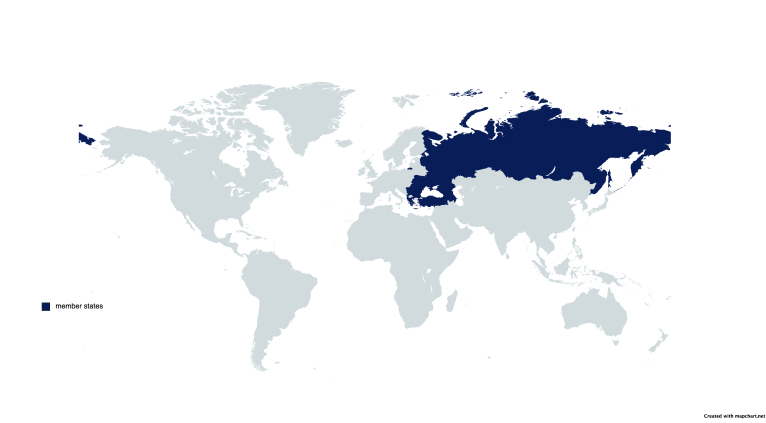

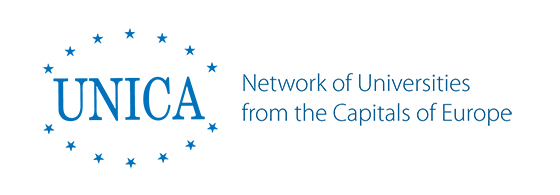
UNICA is a network bringing together 49 member-universities from 37 capital cities of Europe, with a combined strength of over 160,000 staff and 1,900,000 students (2017). It was founded in 1990. It seeks to facilitate international collaborations and promote academic leadership through understanding and sharing between its members throughout the European Higher Education Area. It also provides a forum in which the members can reflect on the needs of strategic change in university research, education, administration, and societal engagement.
In order to achieve the above aims, UNICA articulates the views of its member universities to European institutions, to national, regional, and municipal governments, and internationally. It provides the Members with information on European initiatives and programs, and supports them in developing co-operative projects. UNICA is very active in the field of European projects, both as a coordinator and partner.
The UNICA’s internal organization is based on three bodies: the General Assembly, the Steering Committee and the International Relations Officers’ Committee. UNICA Working Groups are coordinated by member universities.
The General Secretariat in Brussels takes care of UNICA’s general cooperation and administration.
UNICA participates actively in the Stakeholders’ Forum of the European Commission and maintains regular dialogue with the European Commissioner for Education and Culture as well as with the Directorates General for Education and Culture and for Research and Innovation, making sure that the views and recommendations voiced by its member universities are given due attention in the process of developing European higher education and research policies.
Acknowledging the importance of communication and the mutual exchange of knowledge and experience with other key higher education stakeholders at the European and international level, UNICA places great importance in the cooperation with other networks and HE organizations such as European University Association (EUA), EUA Council for Doctoral Education, International Association of Universities (IAU), Erasmus Student Network, European University Foundation, SGroup European Universities’ Network, Coimbra Group of Universities and Compostela Group of Universities.
The UNICA General Assembly 2013 in Rome voted unanimously in favor of the University of Belgrade joining the UNICA Network.
For more detailed information please click here.



CESAER is an association of leading European universities in the field of sciences, mathematics, and technical-technological sciences. It was founded in 1990 as the „Conference of European Schools for Advanced Engineering Education and Research,“ but today it uses only the acronym CESAER as its name, along with the slogan „the strong and united voice of universities of science and technology in Europe.“
The association brings together 58 research universities from 28 countries in Europe and its surroundings. CESAER is recognized as an interested party and a representative organization by the European Parliament, the European Commission, and the European Research Council on matters related to the European Research Area, the European Higher Education Area, and the European Strategy for Universities. CESAER operates through working groups in the areas of sustainability, openness of science and technology, education, innovation, standards, human resources, and sustainable financing.
On October 18, 2019, the General Assembly of CESAER officially invited the University of Belgrade to join the membership, and the university became a member of this association on January 1, 2020.
CESAER
Secretariat
Kasteelpark Arenberg 1
Box 2200
LEUVEN
BELGIUM
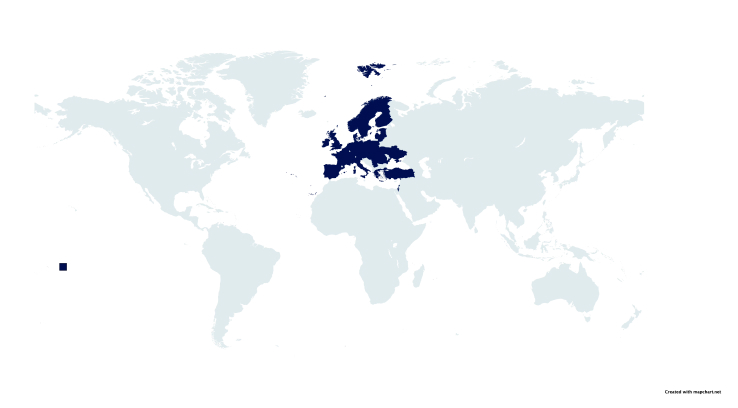

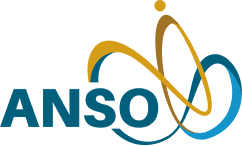
ANSO is a non-profit, non-governmental international scientific organization founded in 2018 by the Chinese Academy of Sciences and 36 other international science and education institutions from around the world. ANSO came into being under the principles of „joint consultation, joint effort and joint sharing“ championed by the Chinese „Belt and Road Initiative“.
ANSO is committed to promoting shared development, sustainable development and the advancement of the UN SDGs through catalyzing and implementing concrete international cooperation initiatives in Science, Technology & Innovation and Capacity Building (STIC). It is envisaged that ANSO will focus attention on the investigation and addressing of the most urgent regional and global scientific challenges. This focus includes supporting the needs and scientific capacity building of the Global South through partnerships and cooperation with the member countries and institutions.
ANSO is an international organization designed to win global recognition and support through continuous activity, sound scientific programs and actions and success in addressing global needs and challenges.
ANSO SECRETARIAT
No.16 Lincui Road
Chaoyang District
Beijing
China
